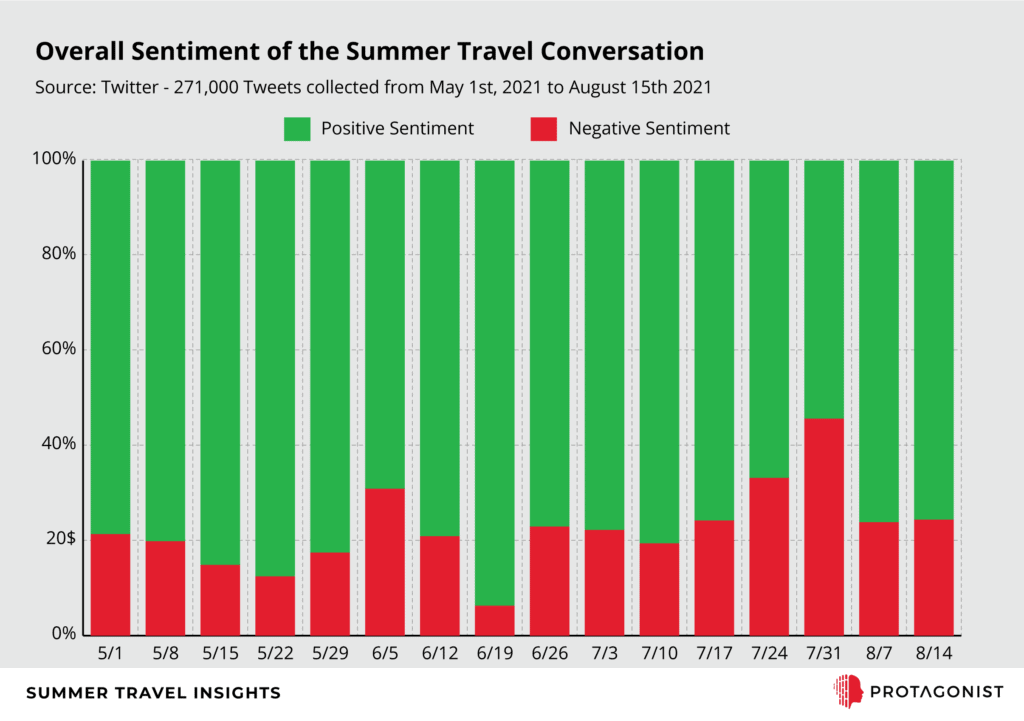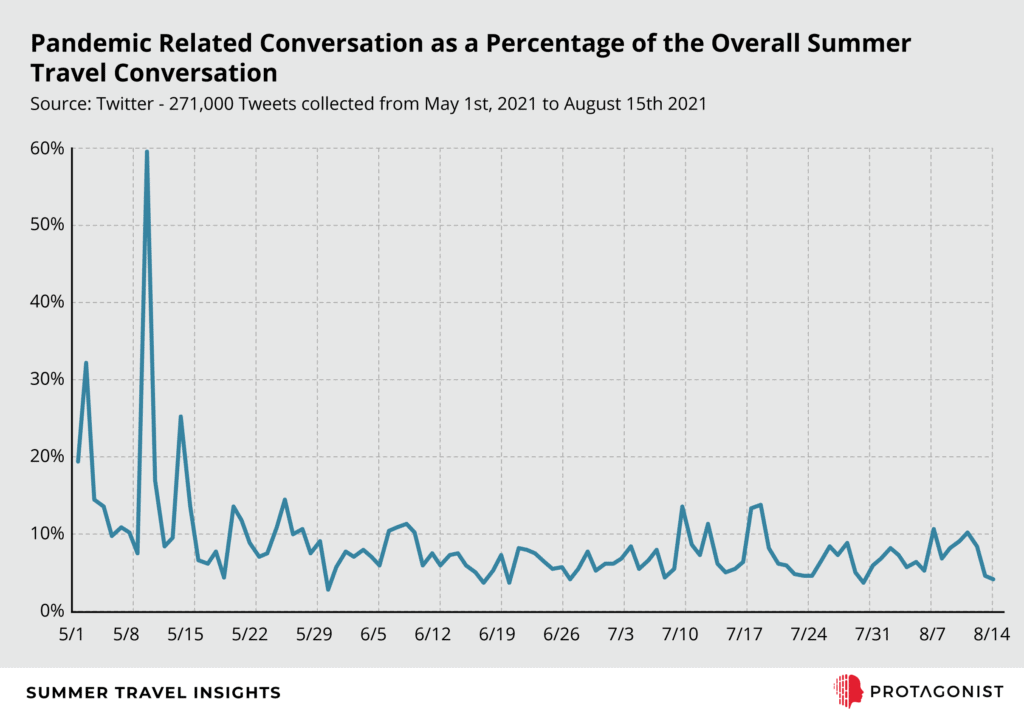As we explored in the previous two articles, attitudes toward summer travel have shifted from pre-pandemic years to the current summer and have differed among regions with different vaccination levels.
With the delta variant on the rise, we were curious to see how much that increased threat has affected the Summer Travel Conversation. To explore this question, we first looked at the conversation’s sentiment.

As the graph shows, the Summer Travel Conversation grew decidedly more negative as the summer wore on. Early summer expressions in May and June focused on making summer travel plans after having to skip them in 2020. People focused on the details of planned itineraries, travel trips and excitement about restrictions being lifted.
The pandemic’s resurgence seemed the most likely culprit for why people’s attitudes toward summer travel have soured. To test that hypothesis, we built a model to measure when people in the Summer Travel Conversation were discussing the pandemic, referencing concepts like the delta variant, increased case counts, and vaccination rates.

The graph above shows the pandemic-oriented conversation as a percent of the overall Summer Travel Conversation. As it demonstrates, though the pandemic share fluctuates up and down, it does not demonstrate an upward trend.
In other words, people are expressing themselves more negatively about summer travel, but they are not explicitly calling out the pandemic as the reason why.
What’s going on here is something more complex and subtle, which we sometimes see in Narrative Analytics. People’s narratives about summer travel are changing, but the mindsets underlying that change may not be so direct as “the variant is causing more danger, so I’m no longer excited about summer travel.” Given the complex role the pandemic plays in society and individual’s everyday lives, it’s likely that information about the pandemic resurgence is being filtered through a number of related political and cultural narratives before emerging as an attitude toward summer travel.
Understanding those more complex ways of thinking is the essence of Narrative Analytics. And that understanding is vital for institutions like governments and businesses who want to appeal to the populations and customers they serve.


